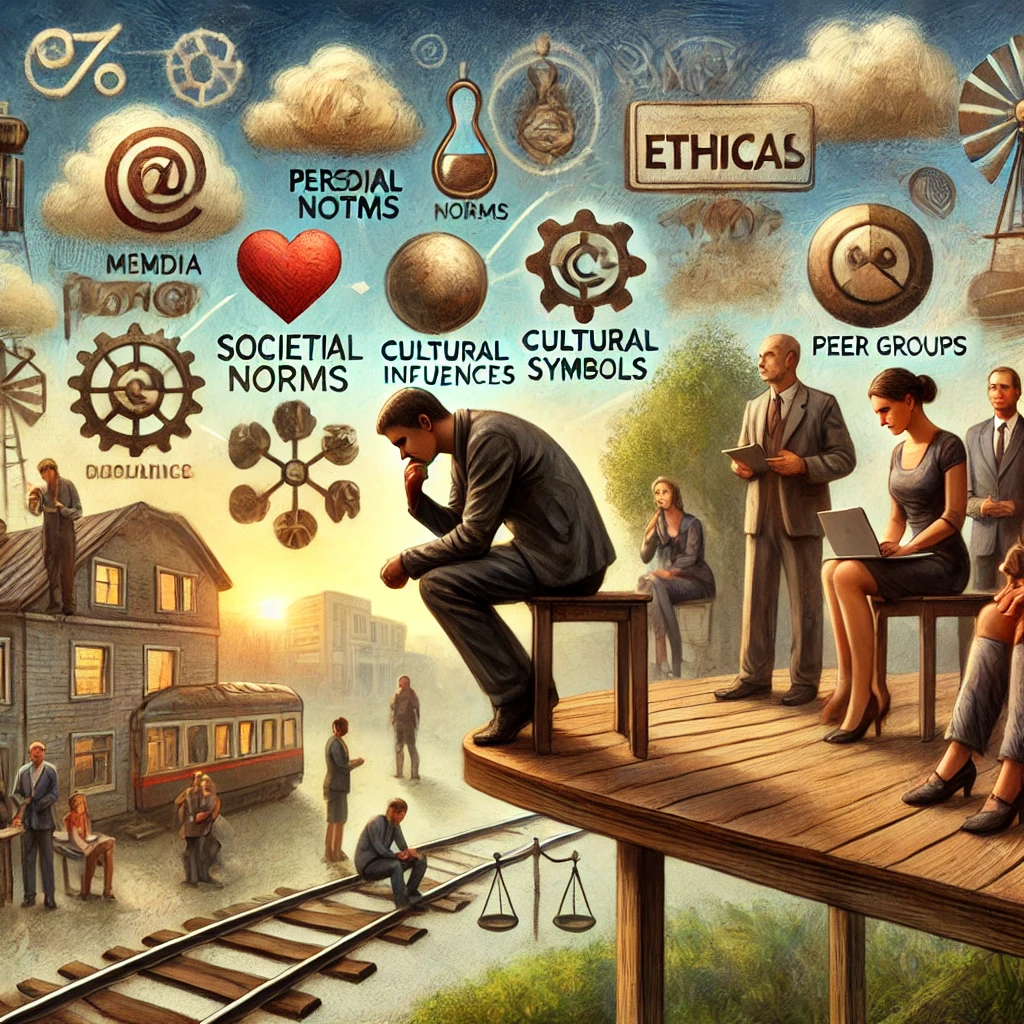 |
Societal norms play a crucial role in shaping personal ethical decision-making. These norms, which are the accepted behaviors and beliefs within a community, can significantly influence how individuals perceive right and wrong. People often conform to societal expectations to gain acceptance and avoid social sanctions. This conformity can lead to decisions that align with societal values, even if they conflict with personal beliefs. Understanding this dynamic is essential for navigating ethical dilemmas and making informed decisions that balance societal expectations and personal values. |
Why do people conform to societal norms? To gain social acceptance, avoid criticism, and feel a sense of belonging.
What are examples of societal norms affecting ethics? Dress codes, professional conduct, and social etiquette are all influenced by societal expectations.
How can individuals balance personal values with societal norms? By critically evaluating societal expectations and making informed decisions that reflect both personal and societal values.
Why is it important to understand societal norms? It helps individuals navigate social interactions and make ethical decisions that are respected by the community.
What challenges arise from societal norms? Conflicts between personal beliefs and societal expectations can create ethical dilemmas.
How can education help in understanding societal norms? Education fosters critical thinking and awareness of different cultural perspectives, aiding in ethical decision-making.
What role does media play in shaping societal norms? Media disseminates and reinforces societal expectations, influencing public perception and behavior.
#SocietalNorms #EthicalDecisionMaking #PersonalEthics #CulturalInfluence #SocialConformity
Related words: societal norms, ethical decisions, personal ethics, social expectations, cultural influence, ethical dilemmas.